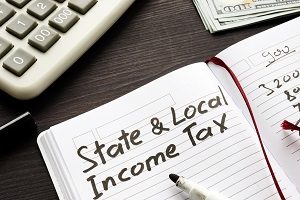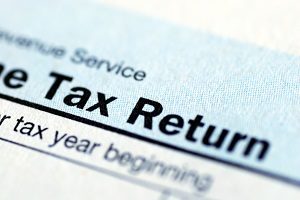April 15, also known as Tax Day in the United States, is rarely greeted with joy. It can cause a lot of stress and anxiety in individuals — especially if you are a homeowner. Although filing your tax returns is a time-consuming process, there are some perks to owning a home. One of which is enjoying real estate tax breaks this tax season.
Real Estate Tax Breaks That Homeowners Can Enjoy
As a homeowner, here are some of the biggest real estate tax deductions that can benefit you each year:
1. Mortgage Interest Deduction
This is definitely one of the most popular real estate tax breaks. For prospective homeowners, the mortgage interest deduction is often a major factor in deciding whether to rent or own property. For those who are already homeowners, this tax break is something they can take advantage of yearly.
Based on the Tax Cuts and Jobs Act (TCJA) of 2017, homeowners who are itemizing their tax deductions can deduct interest on the first $750,000 in loans for their home mortgage. For those who are married but filing separately, the deductible amount is $375,000.
However, if you purchased your home before December 16, 2017, you are exempt from the TCJA. Rather, you can enjoy the previous deductible amount of $1,000,000, or $500,000 if married filing separately.
Even if your loan is a home equity loan or used to purchase a second home, the limit for mortgage interest deduction is still the same. However, this real estate tax break is not applicable to those who are purchasing their third home, fourth home, and so on.
If you want to take advantage of the mortgage interest deduction, you must itemize on Schedule A of Form 1040. Otherwise, you can opt for the standard deduction.
2. Tax Deductions for Home Improvements
 Generally, home improvements in your personal residence are not tax-deductible. However, you can enjoy real estate tax breaks if you make energy upgrades or renovations for medical reasons.
Generally, home improvements in your personal residence are not tax-deductible. However, you can enjoy real estate tax breaks if you make energy upgrades or renovations for medical reasons.
If you installed elements to make your home more energy-efficient before January 1, 2020, you can qualify for a tax credit. Examples of these upgrades include solar panels to reduce power costs as well as new windows to reduce cooling or heating bills. Other projects that qualify are insulation, tankless hot water heaters, doors, and dual-paneled roofs and doors.
Meanwhile, you can also enjoy tax deductions on home improvements but only if these were made due to medical reasons. Out-of-pocket medical expenses can be claimed if they are used to aid a person with a disability. Examples of these upgrades include adding ramps for wheelchair access, widening doors and hallways, adding rails or a lift to stairways, and modifying bathrooms.
If you secure a home equity line of credit for home improvements, you can deduct up to $100,000 on interest. However, in line with the TCJA, this amount is now included in your maximum deduction of $750,000 (or $1,000,000 if the home purchase was before Dec. 16, 2017).
If you are self-employed, you can also qualify for tax deductions if you convert your home office for business use. You can claim it as a business expense on Schedule C. However, the IRS has imposed strict guidelines such as the space cannot be used for family recreation purposes. As such, it’s best to consult a tax professional.
3. State and Local Tax Deductions
 Homeowners can also qualify for state and local tax deductions on their federal tax returns. These deductions have a limit of up to $10,000, or $5,000 if married filing separately
Homeowners can also qualify for state and local tax deductions on their federal tax returns. These deductions have a limit of up to $10,000, or $5,000 if married filing separately
In South Carolina, you can also qualify for specific property tax exemptions. If you are relocating to the state and are purchasing property, you can take advantage of the Legal Residence Special Assessment Ratio of 4% instead of the usual 6 to 10.5%.
Seniors aged 65 and older, as well as people with disabilities, can also apply for Homestead Exemption. This exempts property taxes on the first $50,000 of the value of their residence. To qualify, homeowners should have been legal residents of South Carolina for at least a year. Lastly, veterans and active-duty military personnel can also apply for tax breaks.
North Carolina also has property tax exemptions for such as the Elderly or Disabled Exclusion and the Disabled Veteran Exclusion. There is also a Circuit Breaker Property Tax Deferment that allows seniors and people with disabilities to limit the portion of their income that will be spent on property tax.
To see if you can qualify for these real estate tax breaks, contact your local county auditor’s office. You also need to itemize your tax deductions instead of taking the standard deduction.
4. Private Mortgage Insurance Deduction
Congress extended the tax break for private mortgage insurance (PMI) so you can claim tax deductions for the 2020 federal income year. This is applicable for homeowners you weren’t able to make a 20% down payment on their property and thus, were required to get PMI.
How to Take Advantage of Tax Benefits for Homeowners
 There are many reasons why people decide to become homeowners. Most people purchase a property when they start a family. Meanwhile, others may do it to have freedom when it comes to decorating or renovating their house. Regardless of the reason, though, homeownership leads to a certain perk: real estate tax breaks.
There are many reasons why people decide to become homeowners. Most people purchase a property when they start a family. Meanwhile, others may do it to have freedom when it comes to decorating or renovating their house. Regardless of the reason, though, homeownership leads to a certain perk: real estate tax breaks.
By now, you are well-aware of the real estate tax breaks that you can claim on your federal tax returns. However, simply qualifying for these property tax deductions isn’t enough. You need to properly assess your tax records and make the necessary adjustments. It’s important to follow the correct procedures, use the right forms, and file tax returns on time.
Understandably, tax deductions can be a very confusing and overwhelming process, especially if you are a new homeowner. Add to that, tax deductions can also change from year to year or from administration to administration.
If you want to make sure that everything is taken care of, don’t hesitate to consult a tax professional. If you’re part of a homeowners association (HOA), it may also be useful to have an HOA community manager. They can provide homeowners with high-quality and comprehensive information when it comes to home ownership tax benefits as well as other related issues.
RELATED ARTICLES:






